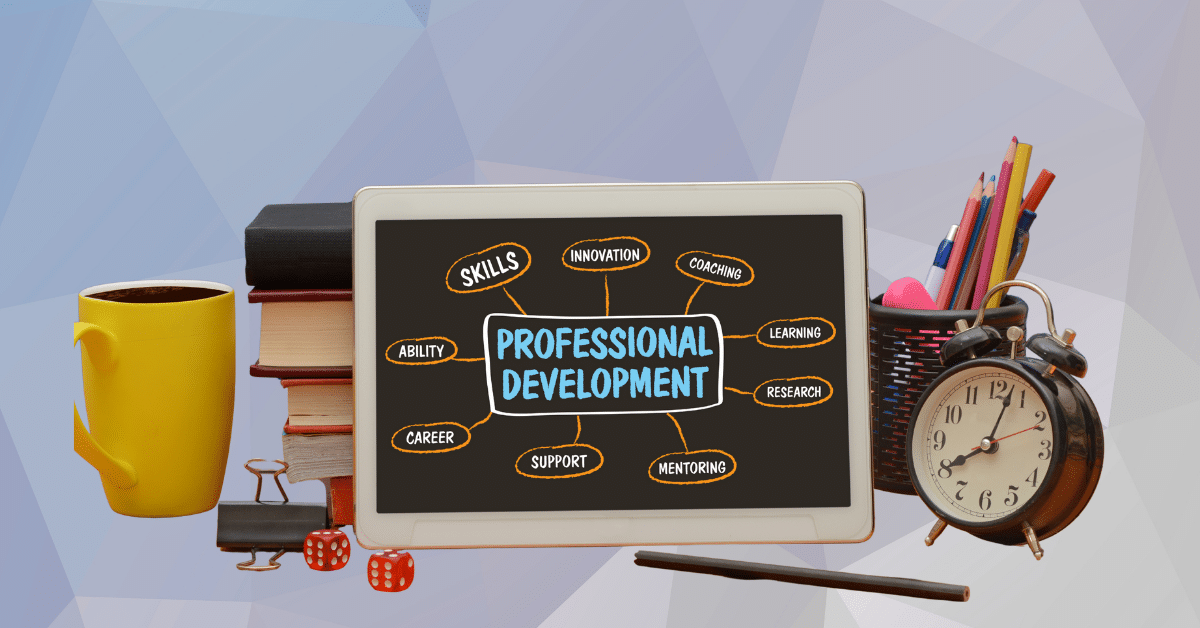The leap from college to the workplace often feels less like a step forward and more like a disorienting jump into unfamiliar territory. One moment you’re dealing with deadlines, group projects, and all-nighters, and the next, you’re navigating job expectations, fast-paced meetings, and unfamiliar office culture. The shift can be jarring – even for the most prepared students.
But don’t worry, feeling overwhelmed is normal. The modern workplace evolves rapidly, driven by technology, shifting markets, and constant change. What matters is how you adapt, learn, and prepare before you make that leap.
The truth is, college can only prepare you so much. Sure, you’ve studied theories, passed exams, and maybe even survived a terrifying public speaking class. But translating all that knowledge into real-world success? That takes more than good grades – it takes preparation, mindset shifts, and, sometimes, expert help for students struggling with writing, especially when strong written communication can make or break your professional image. Services like EssayPro can be a huge resource while you’re still honing your skills.
Why the Workplace is a Whole Different Game
Let’s be clear: the workplace isn’t just an extension of your college experience. It has its own unspoken rules, new expectations, and a pace that can feel relentless if you’re not ready.
In college, your success is measured by assignments, exams, and attendance. The boundaries are clear. In the workplace, your success depends on your initiative, adaptability, problem-solving abilities, and how you contribute to the team. There’s often no strict syllabus, no professor handing you deadlines – it’s on you to stay accountable and proactive.
One of the biggest shocks for new graduates is the ambiguity. You’ll face situations where there’s no obvious answer, no multiple-choice options to pick from. Instead, you’re expected to figure things out, ask smart questions, and problem-solve on the fly.
That’s not a flaw in the system – it’s the reality of a dynamic work environment where challenges aren’t always predictable.
The Mindset Shift You Need to Succeed
The first key to thriving in this new environment? A mindset overhaul.
College often conditions you to play it safe – follow instructions, stay within the lines, deliver what’s expected. But the workplace rewards curiosity, initiative, and independent thinking.
It’s about shifting from being task-focused to being impact-focused. In other words, don’t just complete assignments. Understand how your work contributes to the bigger picture. Ask questions beyond your role. Look for ways to improve processes, suggest ideas, and take ownership.
Adaptability is also crucial. Unlike the structured semesters of college life, the workplace throws curveballs regularly. Projects change. Teams evolve. Industries shift. You need to be comfortable with change and ready to pivot when needed.
Mastering the Soft Skills That Employers Actually Care About
Here’s the secret no one tells you in college: technical skills will get your foot in the door, but soft skills will help you climb the ladder.
Employers consistently rank communication, critical thinking, time management, and collaboration as top skills they want in new hires. These are what set apart employees who survive from those who thrive.
Can you explain your ideas clearly? Handle constructive criticism without getting defensive? Manage your time effectively when juggling multiple tasks? These are the real-world tests you’ll face daily.
Luckily, you’ve been building these skills all along, even if you didn’t realize it. Group projects, presentations, part-time jobs, and even student clubs all contribute to developing these abilities. But in the workplace, they carry more weight – and more impact.
The Role of Networking and Building Relationships
In college, networking might feel forced or intimidating. But in the workplace, it’s essential.
Building relationships with colleagues, mentors, and industry professionals isn’t just about small talk at office parties. It’s about creating genuine connections that can lead to growth opportunities, mentorship, and even future job prospects.
Start by observing how teams communicate. Participate in conversations. Ask for feedback. Be approachable and proactive. You don’t need to be the loudest voice in the room – but showing you’re engaged and interested goes a long way.
Over time, these relationships can open doors you never expected – whether that’s a promotion, a new project, or even an entirely new career path.
Practical Tips to Bridge the Gap
There’s no magic formula for transitioning smoothly into the workforce, but a few intentional actions can make a massive difference.
First, get comfortable with professional tools. Depending on your field, that might mean project management platforms, data analysis tools, or simply mastering business email etiquette. You don’t need to know everything on day one, but familiarity builds confidence.
Second, seek feedback early and often. Constructive criticism isn’t a personal attack – it’s the fastest way to improve. Show your manager you’re eager to grow, and they’ll be more invested in your success.
Third, manage your expectations. You won’t be perfect at your job immediately. No one expects you to be. What matters is your willingness to learn, your attitude, and how you respond when faced with challenges.
Writing Matters More Than You Think
You’d be surprised how much of the professional world relies on clear, concise writing. Whether it’s emails, reports, proposals, or presentations, your ability to express ideas effectively sets you apart.
In college, academic writing feels formulaic. But in the workplace, your writing needs to be direct, persuasive, and professional.
If writing hasn’t been your strength, that’s okay. Resources exist to help. You can improve your skills through practice, mentorship, or even by getting guidance from platforms like EssayPro.
Embracing Lifelong Learning
Here’s the reality: graduation doesn’t mean your learning days are over. In fact, they’re just beginning.
Industries change. Technology evolves. The most successful professionals are those who stay curious, seek new knowledge, and adapt as needed.
Take advantage of workshops, online courses, and company training programs. Stay engaged with industry trends. The workplace rewards those who stay sharp and ready to grow.
Final Thoughts: From Campus to Conference Room
The transition from student to professional is rarely seamless. It’s normal to feel uncertain, overwhelmed, or even intimidated at first.
But remember, you’ve already built the foundation. Your education, your experiences, your setbacks – they’ve prepared you more than you realize.
Success in the workplace isn’t about having all the answers. It’s about showing up, staying adaptable, building meaningful relationships, and never losing your drive to learn.
It might feel uncomfortable at times, but with patience, effort, and a little help along the way, you’ll soon find your rhythm – and your place – in the dynamic, ever-evolving professional world.
The leap from college to the workplace often feels less like a step forward and more like a disorienting jump into unfamiliar territory. One moment you’re dealing with deadlines, group projects, and all-nighters, and the next, you’re navigating job expectations, fast-paced meetings, and unfamiliar office culture. The shift can be jarring – even for the most prepared students.
But don’t worry, feeling overwhelmed is normal. The modern workplace evolves rapidly, driven by technology, shifting markets, and constant change. What matters is how you adapt, learn, and prepare before you make that leap.
The truth is, college can only prepare you so much. Sure, you’ve studied theories, passed exams, and maybe even survived a terrifying public speaking class. But translating all that knowledge into real-world success? That takes more than good grades – it takes preparation, mindset shifts, and, sometimes, expert help for students struggling with writing, especially when strong written communication can make or break your professional image. Services like EssayPro can be a huge resource while you’re still honing your skills.
Why the Workplace is a Whole Different Game
Let’s be clear: the workplace isn’t just an extension of your college experience. It has its own unspoken rules, new expectations, and a pace that can feel relentless if you’re not ready.
In college, your success is measured by assignments, exams, and attendance. The boundaries are clear. In the workplace, your success depends on your initiative, adaptability, problem-solving abilities, and how you contribute to the team. There’s often no strict syllabus, no professor handing you deadlines – it’s on you to stay accountable and proactive.
One of the biggest shocks for new graduates is the ambiguity. You’ll face situations where there’s no obvious answer, no multiple-choice options to pick from. Instead, you’re expected to figure things out, ask smart questions, and problem-solve on the fly.
That’s not a flaw in the system – it’s the reality of a dynamic work environment where challenges aren’t always predictable.
The Mindset Shift You Need to Succeed
The first key to thriving in this new environment? A mindset overhaul.
College often conditions you to play it safe – follow instructions, stay within the lines, deliver what’s expected. But the workplace rewards curiosity, initiative, and independent thinking.
It’s about shifting from being task-focused to being impact-focused. In other words, don’t just complete assignments. Understand how your work contributes to the bigger picture. Ask questions beyond your role. Look for ways to improve processes, suggest ideas, and take ownership.
Adaptability is also crucial. Unlike the structured semesters of college life, the workplace throws curveballs regularly. Projects change. Teams evolve. Industries shift. You need to be comfortable with change and ready to pivot when needed.
Mastering the Soft Skills That Employers Actually Care About
Here’s the secret no one tells you in college: technical skills will get your foot in the door, but soft skills will help you climb the ladder.
Employers consistently rank communication, critical thinking, time management, and collaboration as top skills they want in new hires. These are what set apart employees who survive from those who thrive.
Can you explain your ideas clearly? Handle constructive criticism without getting defensive? Manage your time effectively when juggling multiple tasks? These are the real-world tests you’ll face daily.
Luckily, you’ve been building these skills all along, even if you didn’t realize it. Group projects, presentations, part-time jobs, and even student clubs all contribute to developing these abilities. But in the workplace, they carry more weight – and more impact.
The Role of Networking and Building Relationships
In college, networking might feel forced or intimidating. But in the workplace, it’s essential.
Building relationships with colleagues, mentors, and industry professionals isn’t just about small talk at office parties. It’s about creating genuine connections that can lead to growth opportunities, mentorship, and even future job prospects.
Start by observing how teams communicate. Participate in conversations. Ask for feedback. Be approachable and proactive. You don’t need to be the loudest voice in the room – but showing you’re engaged and interested goes a long way.
Over time, these relationships can open doors you never expected – whether that’s a promotion, a new project, or even an entirely new career path.
Practical Tips to Bridge the Gap
There’s no magic formula for transitioning smoothly into the workforce, but a few intentional actions can make a massive difference.
First, get comfortable with professional tools. Depending on your field, that might mean project management platforms, data analysis tools, or simply mastering business email etiquette. You don’t need to know everything on day one, but familiarity builds confidence.
Second, seek feedback early and often. Constructive criticism isn’t a personal attack – it’s the fastest way to improve. Show your manager you’re eager to grow, and they’ll be more invested in your success.
Third, manage your expectations. You won’t be perfect at your job immediately. No one expects you to be. What matters is your willingness to learn, your attitude, and how you respond when faced with challenges.
Writing Matters More Than You Think
You’d be surprised how much of the professional world relies on clear, concise writing. Whether it’s emails, reports, proposals, or presentations, your ability to express ideas effectively sets you apart.
In college, academic writing feels formulaic. But in the workplace, your writing needs to be direct, persuasive, and professional.
If writing hasn’t been your strength, that’s okay. Resources exist to help. You can improve your skills through practice, mentorship, or even by getting guidance from platforms like EssayPro.
Embracing Lifelong Learning
Here’s the reality: graduation doesn’t mean your learning days are over. In fact, they’re just beginning.
Industries change. Technology evolves. The most successful professionals are those who stay curious, seek new knowledge, and adapt as needed.
Take advantage of workshops, online courses, and company training programs. Stay engaged with industry trends. The workplace rewards those who stay sharp and ready to grow.
Final Thoughts: From Campus to Conference Room
The transition from student to professional is rarely seamless. It’s normal to feel uncertain, overwhelmed, or even intimidated at first.
But remember, you’ve already built the foundation. Your education, your experiences, your setbacks – they’ve prepared you more than you realize.
Success in the workplace isn’t about having all the answers. It’s about showing up, staying adaptable, building meaningful relationships, and never losing your drive to learn.
It might feel uncomfortable at times, but with patience, effort, and a little help along the way, you’ll soon find your rhythm – and your place – in the dynamic, ever-evolving professional world.
The leap from college to the workplace often feels less like a step forward and more like a disorienting jump into unfamiliar territory. One moment you’re dealing with deadlines, group projects, and all-nighters, and the next, you’re navigating job expectations, fast-paced meetings, and unfamiliar office culture. The shift can be jarring – even for the most prepared students.
But don’t worry, feeling overwhelmed is normal. The modern workplace evolves rapidly, driven by technology, shifting markets, and constant change. What matters is how you adapt, learn, and prepare before you make that leap.
The truth is, college can only prepare you so much. Sure, you’ve studied theories, passed exams, and maybe even survived a terrifying public speaking class. But translating all that knowledge into real-world success? That takes more than good grades – it takes preparation, mindset shifts, and, sometimes, expert help for students struggling with writing, especially when strong written communication can make or break your professional image. Services like EssayPro can be a huge resource while you’re still honing your skills.
Why the Workplace is a Whole Different Game
Let’s be clear: the workplace isn’t just an extension of your college experience. It has its own unspoken rules, new expectations, and a pace that can feel relentless if you’re not ready.
In college, your success is measured by assignments, exams, and attendance. The boundaries are clear. In the workplace, your success depends on your initiative, adaptability, problem-solving abilities, and how you contribute to the team. There’s often no strict syllabus, no professor handing you deadlines – it’s on you to stay accountable and proactive.
One of the biggest shocks for new graduates is the ambiguity. You’ll face situations where there’s no obvious answer, no multiple-choice options to pick from. Instead, you’re expected to figure things out, ask smart questions, and problem-solve on the fly.
That’s not a flaw in the system – it’s the reality of a dynamic work environment where challenges aren’t always predictable.
The Mindset Shift You Need to Succeed
The first key to thriving in this new environment? A mindset overhaul.
College often conditions you to play it safe – follow instructions, stay within the lines, deliver what’s expected. But the workplace rewards curiosity, initiative, and independent thinking.
It’s about shifting from being task-focused to being impact-focused. In other words, don’t just complete assignments. Understand how your work contributes to the bigger picture. Ask questions beyond your role. Look for ways to improve processes, suggest ideas, and take ownership.
Adaptability is also crucial. Unlike the structured semesters of college life, the workplace throws curveballs regularly. Projects change. Teams evolve. Industries shift. You need to be comfortable with change and ready to pivot when needed.
Mastering the Soft Skills That Employers Actually Care About
Here’s the secret no one tells you in college: technical skills will get your foot in the door, but soft skills will help you climb the ladder.
Employers consistently rank communication, critical thinking, time management, and collaboration as top skills they want in new hires. These are what set apart employees who survive from those who thrive.
Can you explain your ideas clearly? Handle constructive criticism without getting defensive? Manage your time effectively when juggling multiple tasks? These are the real-world tests you’ll face daily.
Luckily, you’ve been building these skills all along, even if you didn’t realize it. Group projects, presentations, part-time jobs, and even student clubs all contribute to developing these abilities. But in the workplace, they carry more weight – and more impact.
The Role of Networking and Building Relationships
In college, networking might feel forced or intimidating. But in the workplace, it’s essential.
Building relationships with colleagues, mentors, and industry professionals isn’t just about small talk at office parties. It’s about creating genuine connections that can lead to growth opportunities, mentorship, and even future job prospects.
Start by observing how teams communicate. Participate in conversations. Ask for feedback. Be approachable and proactive. You don’t need to be the loudest voice in the room – but showing you’re engaged and interested goes a long way.
Over time, these relationships can open doors you never expected – whether that’s a promotion, a new project, or even an entirely new career path.
Practical Tips to Bridge the Gap
There’s no magic formula for transitioning smoothly into the workforce, but a few intentional actions can make a massive difference.
First, get comfortable with professional tools. Depending on your field, that might mean project management platforms, data analysis tools, or simply mastering business email etiquette. You don’t need to know everything on day one, but familiarity builds confidence.
Second, seek feedback early and often. Constructive criticism isn’t a personal attack – it’s the fastest way to improve. Show your manager you’re eager to grow, and they’ll be more invested in your success.
Third, manage your expectations. You won’t be perfect at your job immediately. No one expects you to be. What matters is your willingness to learn, your attitude, and how you respond when faced with challenges.
Writing Matters More Than You Think
You’d be surprised how much of the professional world relies on clear, concise writing. Whether it’s emails, reports, proposals, or presentations, your ability to express ideas effectively sets you apart.
In college, academic writing feels formulaic. But in the workplace, your writing needs to be direct, persuasive, and professional.
If writing hasn’t been your strength, that’s okay. Resources exist to help. You can improve your skills through practice, mentorship, or even by getting guidance from platforms like EssayPro.
Embracing Lifelong Learning
Here’s the reality: graduation doesn’t mean your learning days are over. In fact, they’re just beginning.
Industries change. Technology evolves. The most successful professionals are those who stay curious, seek new knowledge, and adapt as needed.
Take advantage of workshops, online courses, and company training programs. Stay engaged with industry trends. The workplace rewards those who stay sharp and ready to grow.
Final Thoughts: From Campus to Conference Room
The transition from student to professional is rarely seamless. It’s normal to feel uncertain, overwhelmed, or even intimidated at first.
But remember, you’ve already built the foundation. Your education, your experiences, your setbacks – they’ve prepared you more than you realize.
Success in the workplace isn’t about having all the answers. It’s about showing up, staying adaptable, building meaningful relationships, and never losing your drive to learn.
It might feel uncomfortable at times, but with patience, effort, and a little help along the way, you’ll soon find your rhythm – and your place – in the dynamic, ever-evolving professional world.
The leap from college to the workplace often feels less like a step forward and more like a disorienting jump into unfamiliar territory. One moment you’re dealing with deadlines, group projects, and all-nighters, and the next, you’re navigating job expectations, fast-paced meetings, and unfamiliar office culture. The shift can be jarring – even for the most prepared students.
But don’t worry, feeling overwhelmed is normal. The modern workplace evolves rapidly, driven by technology, shifting markets, and constant change. What matters is how you adapt, learn, and prepare before you make that leap.
The truth is, college can only prepare you so much. Sure, you’ve studied theories, passed exams, and maybe even survived a terrifying public speaking class. But translating all that knowledge into real-world success? That takes more than good grades – it takes preparation, mindset shifts, and, sometimes, expert help for students struggling with writing, especially when strong written communication can make or break your professional image. Services like EssayPro can be a huge resource while you’re still honing your skills.
Why the Workplace is a Whole Different Game
Let’s be clear: the workplace isn’t just an extension of your college experience. It has its own unspoken rules, new expectations, and a pace that can feel relentless if you’re not ready.
In college, your success is measured by assignments, exams, and attendance. The boundaries are clear. In the workplace, your success depends on your initiative, adaptability, problem-solving abilities, and how you contribute to the team. There’s often no strict syllabus, no professor handing you deadlines – it’s on you to stay accountable and proactive.
One of the biggest shocks for new graduates is the ambiguity. You’ll face situations where there’s no obvious answer, no multiple-choice options to pick from. Instead, you’re expected to figure things out, ask smart questions, and problem-solve on the fly.
That’s not a flaw in the system – it’s the reality of a dynamic work environment where challenges aren’t always predictable.
The Mindset Shift You Need to Succeed
The first key to thriving in this new environment? A mindset overhaul.
College often conditions you to play it safe – follow instructions, stay within the lines, deliver what’s expected. But the workplace rewards curiosity, initiative, and independent thinking.
It’s about shifting from being task-focused to being impact-focused. In other words, don’t just complete assignments. Understand how your work contributes to the bigger picture. Ask questions beyond your role. Look for ways to improve processes, suggest ideas, and take ownership.
Adaptability is also crucial. Unlike the structured semesters of college life, the workplace throws curveballs regularly. Projects change. Teams evolve. Industries shift. You need to be comfortable with change and ready to pivot when needed.
Mastering the Soft Skills That Employers Actually Care About
Here’s the secret no one tells you in college: technical skills will get your foot in the door, but soft skills will help you climb the ladder.
Employers consistently rank communication, critical thinking, time management, and collaboration as top skills they want in new hires. These are what set apart employees who survive from those who thrive.
Can you explain your ideas clearly? Handle constructive criticism without getting defensive? Manage your time effectively when juggling multiple tasks? These are the real-world tests you’ll face daily.
Luckily, you’ve been building these skills all along, even if you didn’t realize it. Group projects, presentations, part-time jobs, and even student clubs all contribute to developing these abilities. But in the workplace, they carry more weight – and more impact.
The Role of Networking and Building Relationships
In college, networking might feel forced or intimidating. But in the workplace, it’s essential.
Building relationships with colleagues, mentors, and industry professionals isn’t just about small talk at office parties. It’s about creating genuine connections that can lead to growth opportunities, mentorship, and even future job prospects.
Start by observing how teams communicate. Participate in conversations. Ask for feedback. Be approachable and proactive. You don’t need to be the loudest voice in the room – but showing you’re engaged and interested goes a long way.
Over time, these relationships can open doors you never expected – whether that’s a promotion, a new project, or even an entirely new career path.
Practical Tips to Bridge the Gap
There’s no magic formula for transitioning smoothly into the workforce, but a few intentional actions can make a massive difference.
First, get comfortable with professional tools. Depending on your field, that might mean project management platforms, data analysis tools, or simply mastering business email etiquette. You don’t need to know everything on day one, but familiarity builds confidence.
Second, seek feedback early and often. Constructive criticism isn’t a personal attack – it’s the fastest way to improve. Show your manager you’re eager to grow, and they’ll be more invested in your success.
Third, manage your expectations. You won’t be perfect at your job immediately. No one expects you to be. What matters is your willingness to learn, your attitude, and how you respond when faced with challenges.
Writing Matters More Than You Think
You’d be surprised how much of the professional world relies on clear, concise writing. Whether it’s emails, reports, proposals, or presentations, your ability to express ideas effectively sets you apart.
In college, academic writing feels formulaic. But in the workplace, your writing needs to be direct, persuasive, and professional.
If writing hasn’t been your strength, that’s okay. Resources exist to help. You can improve your skills through practice, mentorship, or even by getting guidance from platforms like EssayPro.
Embracing Lifelong Learning
Here’s the reality: graduation doesn’t mean your learning days are over. In fact, they’re just beginning.
Industries change. Technology evolves. The most successful professionals are those who stay curious, seek new knowledge, and adapt as needed.
Take advantage of workshops, online courses, and company training programs. Stay engaged with industry trends. The workplace rewards those who stay sharp and ready to grow.
Final Thoughts: From Campus to Conference Room
The transition from student to professional is rarely seamless. It’s normal to feel uncertain, overwhelmed, or even intimidated at first.
But remember, you’ve already built the foundation. Your education, your experiences, your setbacks – they’ve prepared you more than you realize.
Success in the workplace isn’t about having all the answers. It’s about showing up, staying adaptable, building meaningful relationships, and never losing your drive to learn.
It might feel uncomfortable at times, but with patience, effort, and a little help along the way, you’ll soon find your rhythm – and your place – in the dynamic, ever-evolving professional world.



















